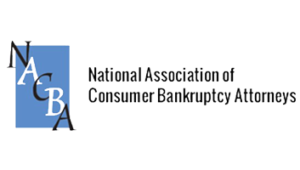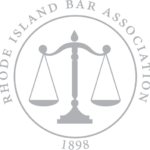Guest post by South Carolina Bankruptcy Lawyer Lex Rogerson.
If you’re trying to decide which approach to bankruptcy is best for you, the prospect of writing off a second mortgage can be a powerful reason to consider filing Chapter 13.
Chapter 13 carries certain disadvantages for consumer debtors as compared with Chapter 7. The fees are higher, the bankruptcy case continues for years instead of months, and the debtor usually has to pay some creditors who might get nothing if he filed Chapter 7. So there has to be a good reason to choose Chapter 13.
Traditionally the most common reason is that Chapter 13 lets debtors catch up with delinquent mortgage payments in an orderly way. But with real estate values down an average of 30% over the last few years, an increasingly common reason to file Chapter 13 is to strip off an “underwater” second (or third) mortgage.
Let’s start by looking at how secured debts are treated in bankruptcy. In Chapter 7, for the most part, secured debts pass through unaffected. If you have two mortgages when you file Chapter 7, you will almost always have two mortgages when you finish your case. You cannot strip off a mortgage in Chapter 7.
By comparison, in Chapter 13, secured debts generally are paid in full. But unsecured creditors are often paid a nominal amount, possibly as low as one to two percent of their claims. If a debt can be classified as unsecured, the debtor can likely eliminate it with a minimal payment.
Now, we typically think of a mortgage as a classic secured debt, because the creditor has a lien on the home or other real estate to secure payment. But the Bankruptcy Code has a special definition of secured debts. Under Section 506, a debt is secured only to the extent of the value of the collateral. So if I own a TV worth $200 but owe $300 on the TV, the creditor has a secured claim of $200 and an unsecured claim for the remaining $100. We refer to this as bifurcating the claim or “cramdown.”
With home mortgages, it works a little differently. In order to encourage mortgage lending, Congress has decreed that first mortgages on residential real estate cannot be crammed down. So while Chapter 13 can help you catch up with a first mortgage if you are behind, it cannot reduce the total amount required to pay off the mortgage debt.
The situation can be different for second mortgages. If the value of the property is less than the payoff on the first mortgage, the second mortgage has no remaining value to “attach to.” In effect, the first mortgage eats up all the value of the property, leaving none for the second. In this situation, the second mortgage can be classified as fully unsecured. This means the debt to the second mortgage holder, like any other unsecured debt, can be discharged, usually with only a nominal payment. We refer to this as stripping off the second mortgage.
To illustrate how this works, let’s say you have a first mortgage with a balance of $100,000 and a second of $40,000. If your home is worth less than $100,000, your Chapter 13 plan can classify the second mortgage as an unsecured debt and usually pay it off at pennies on the dollar, because the first mortgage eats up all the value in the home. But if your home is worth $100,001, the entire second mortgage survives and must be paid in full.
Because determining real estate values is not a precise matter, it is not always possible to tell for sure whether a stripoff will succeed. But the potential upside is tremendous: the debtor can emerge from Chapter 13 after three to five years with only one mortgage instead of two, and without paying a substantial amount on the second. It’s an opportunity you will want to discuss with your RI bankruptcy attorney if your second (or third) mortgage may be underwater.
One last wrinkle. If the value of the property is more than the first mortgage payoff – even if only a few dollars – this leaves some value in the property that the second mortgage can attach to. The second mortgage then gets the same protection as the first. It must be paid in full. It’s an all-or-nothing proposition. Any value beyond the first mortgage means the second mortgage survives.





